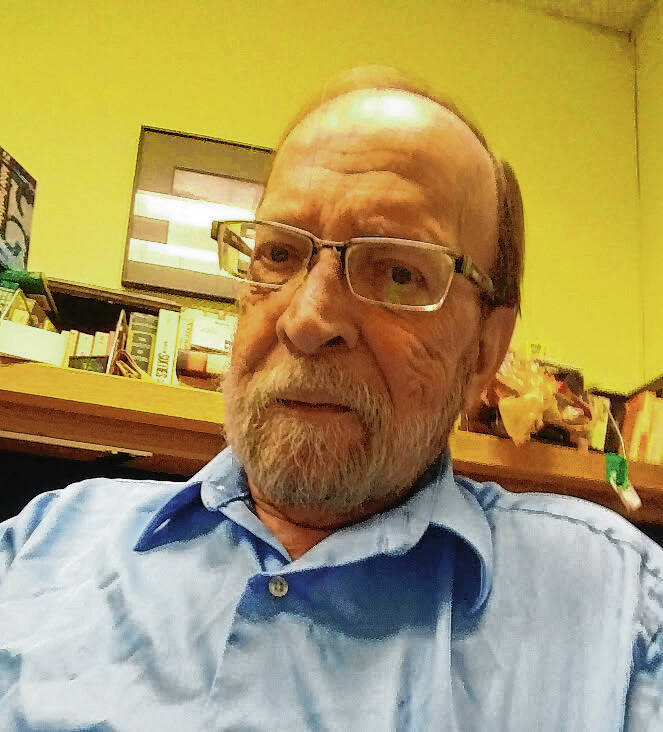While we were all busy monitoring the General Assembly as it slogged through proposed legislation, the Indiana Supreme Court sneaked a pretty big development in on us.
After an apparently successful experiment in several jurisdictions, the justices have authorized judges throughout the state to allow cameras in courtrooms if they wish. Hoosier voyeurs, rejoice – our time has come.
I could offer a constitutional justification for the move. We are guaranteed the right to a public trial, and the meaning of “public” has changed in the electronic age. We no longer have to be present in person if cameras can bring the action to our viewing screens.
Or I could fall back on the journalistic devotion to “the public’s right to know,” not just the conduct or outcome of a particular trial, but the workings of the justice system overall, in case they should ever be caught up in it themselves.
But I will just be honestly personal and say I prefer seeing things for myself instead of being told about it by observers of unknown reliability.
I want to be like one of the jurors and proclaim “I can do that” when the judge tells us to consider the evidence presented in court and only that evidence in reaching a verdict. I will not care about the prosecutor’s passionate outburst or the defense attorney’s flashy outfit or the defendant’s transgressions in the second grade or the opinions delivered by my next-door neighbor, the quickly drafted expert on the evening news or the earnest editorial writer in the local newspaper.
I want to be an ordinary citizen, properly skeptical of the prosecutor’s case, giving the defendant the benefit of the doubt but willing to be convinced of his guilt “beyond a reasonable doubt.”
I guess that’s the way I approach everything, skeptical but willing to be convinced. That’s why firsthand knowledge is so much more valuable than secondhand accounts or, increasingly prevalent these days, thirdhand speculation about secondhand accounts.
And why permitting cameras in the courtroom represents a welcome addition to government’s recent and reluctant commitment to greater transparency, giving citizens at least a small glimpse of how our public servants operate.
Body cams on police officers. Live broadcasts of city council and school board meetings. C-Span poking its lenses into any corner of Congress it is able to. State Web sites that publish the texts of proposed laws.
All that adds to the potential of an informed citizenry, but it does not go nearly far enough. We should want to see and hear much, much more about what our officials are up to.
So, I have a proposal. I think it modest, but in case you think it would be too intrusive, just consider for a moment how much the zone of privacy has shrunken for ordinary citizens.
While you are sitting on your couch, just cruising online, every site you visit is monitored, and what you purchase is tracked. Your “smart” appliances probably know more about you than you would care to divulge. As soon as you leave the house, your phone (and possibly your car as well) knows where you go and when you go there. Wherever you visit, you are likely to be followed by cameras, paid for with your tax dollars. You are in more databases than you dare to imagine.
We no longer have to dread the nightmarish surveillance state of “1984.” We are living it.
So why should not our public officials, who actually seek the spotlight and loss of privacy that involves, but also work to constantly erode our sense of autonomy, be subjected to even more scrutiny than ordinary citizens?
Therefore, my modest proposal, which we might call a reverse “1984.”All those who are elected to public office, from the lowliest township official to the president of the United States, must wear body cameras for the duration of their tenures.
We can allow them some private moments – in the bathroom, for example, or in the bedroom, especially when with a significant other. Otherwise, the cameras must be on at all times, even at times we ordinarily think of as sacrosanct. How many important legislative proposals might start as simple conversations over the dining room table?
The feeds from all those cameras will be live all the time in a special Internet zone, and they will be archived forever, always available for scrutiny by any member of the electorate. Any official with an unexplained gap in footage will be brought before a citizens committee, under threat of indictment and subject to severe penalties for perjury, to explain the lapse.
We don’t want to be hasty with the proposal. We can be properly cautious like the Indiana Supreme Court and try it out as an experiment in just one jurisdiction – the General Assembly might be a good place to start – before the plan is rolled out universally. It might not give us better state laws, but at least we’d know for sure which politicians to run out of the state.
Let’s get going on this. We need to really put “public” in the concept of public servant.
Leo Morris, columnist for The Indiana Policy Review, is winner of the Hoosier Press Association’s award for Best Editorial Writer. Morris, as opinion editor of the Fort Wayne News-Sentinel, was named a finalist in editorial writing by the Pulitzer Prize committee. Contact him at [email protected].





